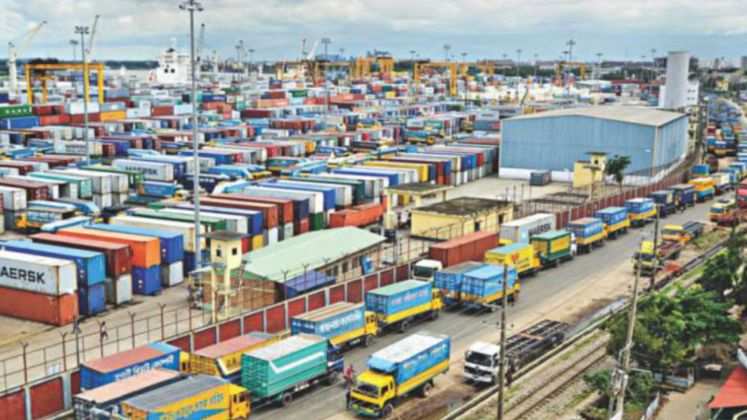
Chittagong port, Bangladesh’s primary gateway for international trade, is facing severe congestion caused by an excessive accumulation of empty containers, surpassing its storage capacity and disrupting port operations. As of Thursday, 7th August, the port’s designated empty container yards held 7,158 TEUs, significantly above their capacity of 5,500 TEUs, according to data from the Chittagong Port Authority (CPA).
In an effort to alleviate the congestion, the CPA issued a seven-day ultimatum last week, urging stakeholders to clear the backlog by either loading empties onto outbound vessels or transferring them to inland container depots (ICDs). The authority warned that failure to comply would result in a fourfold increase in storage rent charges. However, with the deadline having expired, the situation has only worsened, with the yards becoming increasingly congested.
CPA Secretary Md Omar Faruk indicated that measures would be implemented soon but did not provide specific details. Shipping agents and industry stakeholders, opposing the threat of higher penalties, called on the CPA to instead increase allocations for loading empty containers onto outgoing ships.
A significant portion of imported goods arrives in containers that are emptied and temporarily stored in port yards before being moved to private ICDs. However, many ICDs are also at capacity, compounding the problem. The congestion has been escalating since late June, coinciding with a surge in export volumes.
Previously, in late July, the CPA attempted to address the issue by prioritising berthing for three or four vessels specifically to remove empties. Despite these efforts, the problem persisted. On 30th July, the CPA’s traffic director issued a circular reiterating the deadline of 7th August for stakeholders to clear empties, warning of quadrupled storage charges for non-compliance.
The Bangladesh Shipping Agents Association (BSAA) has publicly urged the CPA to abandon the rent hike plan and instead facilitate more loading slots for empty containers on outbound ships. Muntasir Rubayat, BSAA leader, highlighted that nearly 40% of empties are now stored in the overflow yard of NCT, with many remaining there for 20 to 30 days. He criticized the infrequent transfer of empties from overflow yards to port yards for loading onto vessels, citing ongoing concerns about prolonged dwelling times.
Currently, port regulations stipulate that store rent for empty containers is US $ 6 per TEU for the first seven days, US $ 12 per TEU from day 8 to 20, and US $ 24 per TEU per day thereafter, intensifying the financial burden on stakeholders and adding urgency to resolving the crisis.






